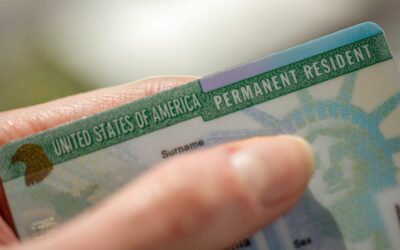New mandatory bans prevent people with criminal convictions, drunk drivers (DUI or DWI), gang members and other alien offenders from receiving asylum
WASHINGTON – The Department of Justice and the Department of Homeland Security announced the release of final rules that modify their respective regulations to prevent certain categories of aliens with criminal convictions from obtaining asylum in the United States. The rule takes effect 30 days after the final rule is published in the Federal Register, which is scheduled to be published on Wednesday, October 21, 2020. Asylum is a discretionary immigration benefit. Eligible aliens may apply for asylum if they are eligible. They must be physically present, regardless of their status, under section 208 of the Immigration and Nationality Act (INA), 8 U.S.C. § 1158. However, at the INA, Congress prohibited certain categories of aliens from receiving asylum. In addition to the prohibitions under the law, Congress delegated to the Attorney General and the Secretary of Homeland Security the authority to establish additional prohibitions on eligibility for asylum, as well as to establish “any other conditions or limitations on the consideration of an asylum application” that are consistent with the INA. To ensure that criminal aliens cannot obtain this discretionary benefit, the Attorney General and the Secretary of Homeland Security have exercised their regulatory authority to limit the eligibility for asylum of aliens who have engaged in specific categories of criminal behavior. The new prohibitions apply to foreigners convicted of:
- A felony under federal or state law;
- An offense under 8 U.S.C. §1324(a)(1)(A) or §1324(a)(1)(2) (Smuggling or lodging of aliens);
- An offense under 8 U.S.C. § 1326 (Unlawful Reentry);
- A federal, state, tribal, or local crime involving criminal street gang activities;
- Certain federal, state, tribal, or local crimes related to the operation of a motor vehicle under the influence of an intoxicant (drugs or alcol);
- A federal, state, tribal, or local domestic violence offense, or that an adjudicator determines have engaged in acts of aggression or extreme cruelty in a domestic context, even if no conviction occurred; and
- Certain misdemeanors under federal or state law for crimes related to false identification; the unlawful receipt of public benefits from a federal, state, tribal, or local entity; or the possession or trafficking of a controlled substance or paraphernalia of controlled substances.
Foreigners who have committed certain crimes of domestic violence, even if they have not been convicted, will also be excluded from asylum.
—————————————————————————–
Consultation with a competent and experienced immigration professional is the best way to eliminate individual concerns. There’s no time to waste. You have to consult with a lawyer right away if you want to apply for political asylum!! Only a consultation with an immigration attorney who has extensive experience in the subject can reveal whether you have a chance to fix your situation. Contact us now, to advise you.





